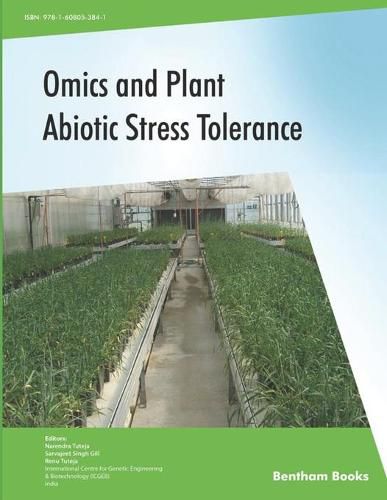Readings Newsletter
Become a Readings Member to make your shopping experience even easier.
Sign in or sign up for free!
You’re not far away from qualifying for FREE standard shipping within Australia
You’ve qualified for FREE standard shipping within Australia
The cart is loading…






Multiple biotic and abiotic environmental factors may constitute stresses that affect plant growth and yield in crop species. Advances in plant physiology, genetics, and molecular biology have greatly improved our understanding of plant responses to stresses. This book details on technologies that have emerged during the past decade and have been useful in studying the multigenicity of the plant abiotic stress response. Upstream molecular mechanisms are involved in the plant response to abiotic stress, above all in the regulation of timings and amount of specific stress responses. Post-transcriptional mechanisms based on alternative splicing and RNA processing, as well as RNA silencing define the actual transcriptome supporting the stress response. Beyond protein phosphorylation, other post-translational modifications like ubiquitination and sumoylation regulate the activation of pre-existing molecules to ensure a prompt response to stress factors. The text in this book deals with the importance of -omics approaches like Genomics, Metabolomics and Proteomics in abiotic stress tolerance. Large scale analytical approaches provide detailed information about the structure and complexity of signaling networks, identify subsets of genes or activities that are correlated to given stress factors and reveal unexpected or previously uncharacterized biochemical interactions. To the best of our knowledge no book on -Omics studies in relation to Plant Abiotic Stress Tolerance is available in the market. This book should therefore be a valuable asset for the readers.
$9.00 standard shipping within Australia
FREE standard shipping within Australia for orders over $100.00
Express & International shipping calculated at checkout
Multiple biotic and abiotic environmental factors may constitute stresses that affect plant growth and yield in crop species. Advances in plant physiology, genetics, and molecular biology have greatly improved our understanding of plant responses to stresses. This book details on technologies that have emerged during the past decade and have been useful in studying the multigenicity of the plant abiotic stress response. Upstream molecular mechanisms are involved in the plant response to abiotic stress, above all in the regulation of timings and amount of specific stress responses. Post-transcriptional mechanisms based on alternative splicing and RNA processing, as well as RNA silencing define the actual transcriptome supporting the stress response. Beyond protein phosphorylation, other post-translational modifications like ubiquitination and sumoylation regulate the activation of pre-existing molecules to ensure a prompt response to stress factors. The text in this book deals with the importance of -omics approaches like Genomics, Metabolomics and Proteomics in abiotic stress tolerance. Large scale analytical approaches provide detailed information about the structure and complexity of signaling networks, identify subsets of genes or activities that are correlated to given stress factors and reveal unexpected or previously uncharacterized biochemical interactions. To the best of our knowledge no book on -Omics studies in relation to Plant Abiotic Stress Tolerance is available in the market. This book should therefore be a valuable asset for the readers.